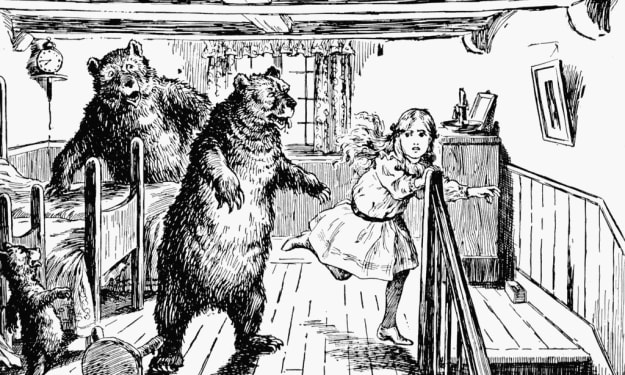How to write a short story
Write short story with just few steps

INTRODUCTION
For some journalists, the brief tale is the ideal medium. It is an invigorating movement. For some, it is however normal as breathing may be to lungs. While composing a novel can be a Massive errand, pretty much anyone can create — and, in particular, finish — a brief tale. Composing a novel can be a tedious undertaking, yet composing a brief tale, it's not something very similar. A brief tale incorporates setting, plot, character and message. Like a novel, a decent brief tale will excite and engage your peruser. With some conceptualizing, drafting, and cleaning, you can figure out how to compose an effective brief tale in a matter of moments. Also, the best advantage is that you can alter it every now and again until you are fulfilled.
Brainstorming Ideas
Think of a plot or situation. Ponder the idea of the story, what the story will be about and what will occur in the story. Consider what you are attempting to address or outline. Conclude what your methodology or point on the story is going to be.
For instance, you can begin with a basic plot like your fundamental person needs to manage terrible news or your primary person gets an undesirable visit from a companion or relative.
You can likewise attempt a more muddled plot like your fundamental person awakens in an equal aspect or your primary person finds another person's skeleton in the closet
Principal Character
Center around a convoluted principal character. Most brief tales will zero in on one to two principal characters and no more. Ponder a primary person who has an unmistakable longing, or need, yet who is likewise brimming with logical inconsistencies. Try not to just have a decent person or a terrible person. Give your fundamental person fascinating properties and sentiments so they feel confounded and well-rounded.
Making Characters that Pop:
Tracking down Motivation: Characters are surrounding you. Invest some energy people-watching in a public spot, similar to a shopping center or occupied walker road. Make notes about fascinating individuals you see and ponder how you could integrate them into your story. You can likewise get characteristics from individuals you know.
Creating a History: Dig into your principal character's previous encounters to sort out what is most important to them. How was the forlorn elderly person as a kid? Where did he get that scar on his hand? Regardless of whether you remember these subtleties for the story, realizing your personality profoundly will assist them with sounding valid.
Characters Make the Plot: Make a person who makes your plot really fascinating and confounded. For instance, in the event that your personality is a teen young lady who truly thinks often about her family, you could anticipate that she should shield her sibling from school menaces. Assuming she detests her sibling, however, and is companions with his harassers, she's tangled such that makes your plot significantly really intriguing.
Make a focal struggle for the principal character. Each great brief tale will have a focal struggle, where the principal character needs to manage an issue or issue. Present a contention for your primary person from the get-go in your brief tale. Make your primary person's life troublesome or hard.
For instance, perhaps your principal character has a longing or need that they struggle with satisfying. Or on the other hand maybe your principal character is caught in a terrible or hazardous circumstance and should sort out some way to remain alive.
Setting
Pick a fascinating setting. One more key component of a brief tale is the setting, or where the occasions of the story are occurring. You might adhere to one focal setting for the brief tale and add subtleties of the setting to scenes with your characters. Pick a setting that is intriguing to you, and that you can make fascinating for your reader.[4]
Tips on Making a Setting:
Conceptualizing depictions: Compose the down names of your settings, for example, "little state on Mars" or "the secondary school baseball field." Envision each spot as clearly as you can and write down anything that subtleties come into your head. Put your characters down there and picture what they could do here.
Pondering your plot: In view of your characters and the bend of your plot, where does your story have to happen? Make your setting a vital piece of your story, with the goal that your perusers couldn't envision it elsewhere. For instance, in the event that your principal character is a man who gets into an auto collision, setting the story in an unassuming community in the colder time of year makes a conceivable justification behind the accident (dark ice), in addition to an additional complexity (presently he's abandoned exposed with a messed up vehicle).
Try not to over-burden the story. Utilizing an excessive number of settings could befuddle your peruser or make it difficult for them to get into the story. Utilizing 1-2 settings is generally ideally suited for a brief tale.
Contemplate a specific subject
Contemplate a specific subject. Many brief tales community on a subject and investigate it according to the perspective of a storyteller or fundamental person. You might take a wide topic like "love," "want," or "misfortune," and consider it according to the perspective of your principal character.
You can likewise zero in on a more unambiguous subject like "love between kin," "longing for fellowship" or "loss of a parent."
Profound peak
Plan a profound peak. Each great brief tale has a breaking second where the fundamental person arrives at a profound high point. The peak normally happens in the last 50% of the story or near the finish of the story. At the peak of the story, the fundamental person might feel overpowered, caught, frantic, or even out of control.[6]
For instance, you might have a profound peak where your fundamental person, a desolate old man, needs to face his neighbor about his criminal behavior. Or on the other hand you might have a close to home peak where the fundamental person, a youthful teen young lady, goes to bat for her sibling against school menaces.
Turn or shock
Consider a completion with a turn or shock. Conceptualize a closure that will leave your peruser astounded, stunned, or fascinated. Stay away from clear endings, where the peruser can figure the closure before it works out. Provide your peruser with a misguided feeling of safety, where they assume they know how the story will end, and afterward divert their consideration regarding another person or a picture that leaves them stunned.
Making a Wonderful Completion:
Evaluate maybe one or two endings. Frame one or two endings you could utilize. Envision every choice and see which ones feel more normal, astonishing, or satisfying. It's alright in the event that you don't find the right completion immediately — it's one of the hardest pieces of the story to compose!
How would you believe your perusers should feel when they finish? Your completion is the keep going effect you'll have on your peruser. How might they feel assuming your characters succeed, fall flat, or land some place in the center? For instance, in the event that your fundamental person chooses to face her sibling's harassers however gets frightened without a moment to spare, the perusers will leave feeling like she actually has a ton of soul-looking to do.
Avoid platitudes. Ensure you keep away from contrivance endings, where you depend on natural unexpected developments to shock your peruser. Assuming that your closure feels recognizable or in any event, exhausting, challenge yourself to make it more hard for your characters.
About the Creator
Aliya Dicey
We are among the 20th century best Writers, i believe that BETTER is not good enough But the BEST is yet to come.






Comments
There are no comments for this story
Be the first to respond and start the conversation.